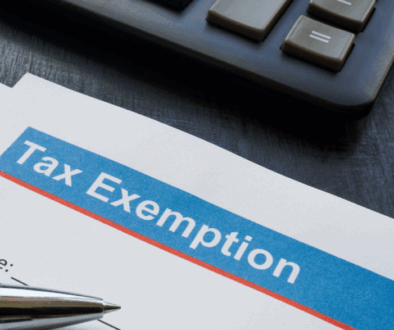What’s the Difference Between Bookkeeping and Accounting?
What’s the Difference Between Bookkeeping and Accounting?
Bookkeeping and accounting are often used interchangeably, but there are subtle differences between the two professions. Which one is more appropriate for your business needs? It may be a combination of both!
At the most basic level, bookkeeping is an administrative function that helps your business track and record financial transactions. Accounting is a higher-level overview that provides insights into the financial health and outlook of your business, often based on the transactional information found within the bookkeeping.
Bookkeeping Tasks
Bookkeepers are detailed and skilled at administrative recordkeeping. Their tasks may include:
- Payroll processing
- Recording expenditures
- Recording payments
- Categorizing payments or expenditures
- Reconciling bank statements each month
- Generating unaudited financial statements, including balance sheets, cash flow statements, and income statements
- Generating invoices for customers
- Recording payments and reconciling payments
- Posting debits and credits
- Managing general ledgers
- Completing year-end financial reporting
As you can tell by the type of tasks, bookkeepers are heavily involved in the day-to-day transactional finances of a business and keep those financial transactions organized. Having a solid bookkeeping system in place means that your sales and invoicing system are all processed in your general ledger so that your records are easily accessible.
Bookkeeper Credentials
To work as a bookkeeper, there are no specific licenses required. However, a bookkeeper may choose to obtain a certification depending on where they are located. Bookkeepers are often good at working with details and able to catch mistakes in numbers and reconciliations.
Accounting Tasks
An accountant often uses the data from bookkeeping to extrapolate financial models for a business. They may also prepare taxes and provide tax advice, or financial advice for a business owner. Tasks may include:
- Creating, reviewing, and analyzing financial statements
- Advising businesses on financial decisions
- Determining the fiscal health of a business
- Creating financial forecasts
- Determining the cost of operations
- Advising on operational decisions based on finances
- Preparing and filing tax returns
- Determining tax strategies and conducting tax planning
- Providing tax advice for a business
- Performing audits
- Preparing adjusting entries
Accountants take the day-to-day data of your business and use it to make long-term forecasts to help you make business decisions based on your financial information. Accountants are also qualified to help you with your tax preparation, strategies, and tax planning, whereas a bookkeeper does not handle any tax tasks.
Accountant Credentials
Accountant credentials vary, but most accountants have a bachelor’s degree in accounting or a degree in finance. They may also have professional certifications such as a CPA (Certified Public Accountant) or an Enrolled Agent (EA), both of which must pass exams in order to be certified. Accountants may also pursue specialized education to hone their skills, in order to become financial auditors or forensic accountants.
Do I need an accountant or a bookkeeper?
To determine if you need a bookkeeper or an accountant, you need to first understand your business needs. Do you need help with keeping your financial records organized? Or do you need advice on how to operate your business and complete your taxes? Often, businesses need both a bookkeeper and an accountant.
If you’re handling the books yourself and then handing that off to an accountant, if there are errors and omissions in your recordkeeping, it creates more work for the accountant that can be costly for you. If you hire a bookkeeper and keep excellent records, but then tackle the taxes yourself and don’t have any insight into how to plan for your fiscal future at your business, you’re missing a key component for your business planning.
When hiring a bookkeeper or accountant, review their services, experience, and certifications during the hiring process. If you’re hiring both an accountant and bookkeeper, look for a firm that offers both options in one location such as Diversified Tax, so that the process between the two is seamless.
Want tax tips delivered to your inbox?




